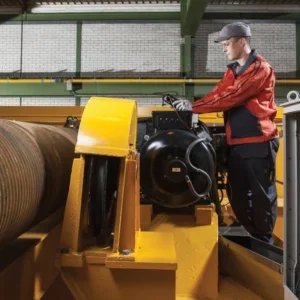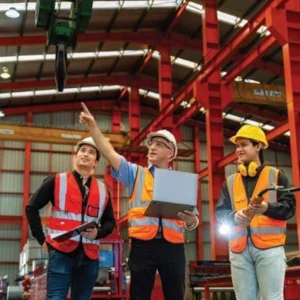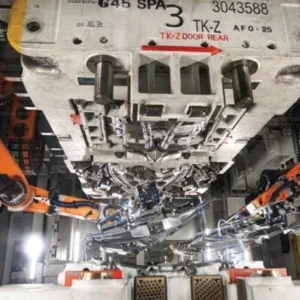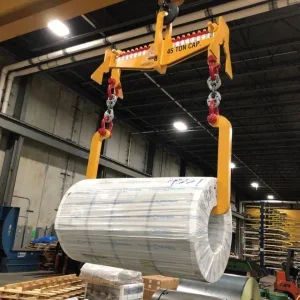Not so at Condra, a Johannesburg-headquartered cranes and hoists manufacturer where efforts to protect the environment exceed industry norms by a considerable margin.
At the company’s main Germiston factory, there are 11 collection processes for input wastes: steel plate, steel shavings, plastic, white metal, aluminium, brass, tungsten carbide, lubricating oil, soluble oils, paper and (separately) cardboard, as well as composting for organic waste. All 11 collection streams are both continuous and carefully organised, and have been in place across the 9000 square-metre factory floor for several years. Similar recycling systems are currently being implemented at the Cape Town subsidiary, BB Cranes.
Condra’s 11 collection streams contrast with the two more usually found at industrial manufacturing plants, one for lubricants and a second for solids. Two streams give rise to the considerable problem of mixed waste: before recycling can take place, the waste collection company has first to separate out what the recycling companies will take and, if the cost of that separation exceeds the price received for the waste, then the only disposal options are to incinerate, bury or crush.
By contrast, Condra’s collection streams result in maximum recyclability. Additionally, solar panels at the Johannesburg works replaced electricity from the national grid in 2016, supplying a daily average of 70% of the factory’s power requirements. Again, the recently acquired Cape Town subsidiary is soon to follow suit.
The effectiveness of the multi-streamed collection approach may be measured by the infrequent collection of Condra’s general (unsorted) waste skip – about once every five weeks instead of the weekly collection generally considered the norm.
Most of the separate collections streams pay a dividend. Steel offcuts and shavings from the machine shop fetch about 15% of cost price, while aluminium and brass fetch considerably more. Used tungsten carbide machine tool tips fetch 300 rands (20 dollars) a kilogram, and Condra has incorporated usage control into the tip collection process. When the operator exchanges an old tip for a new one, not only is the stock more easily controlled, but the collected tip earns its keep.
In addition to the recycling of input waste, the end products themselves are subject to continual refinement to improve energy efficiency and deliver a minimised overall lifetime cost, an environmentally friendly goal in itself. Design engineers are currently researching the effect of different rotor and rotor winding configurations – silumin among them – on motor torque and efficiency, the aim being to reduce energy requirements.
Commenting on these processes, a Condra spokesperson pointed out that Condra’s recycling methods are perhaps more effective than the voluminous spin often put on industrial waste collection.
“If you consider that it costs this company more in fuel to take paper and cardboard to the recycling depot than we are paid for it, then our claim that we are trying to make a contribution becomes clearer,” he said.
“While we continue to work towards official certification, at the moment we believe that actions speak louder than paperwork. We will continue to make a difference through what we do in practice.”’






